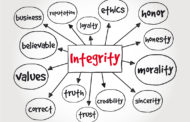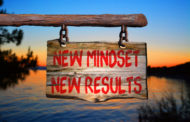By Michael Stern
The challenging emotions that come along with deep uncertainty in times of transition are an inevitable part of life. But resilience is not about never getting knocked down. It’s about how quickly you recover and whether you learn and grow from the experience.
SBNRR practice
Do you find yourself feeling “knocked down” more than usual these days? Here is a simple practice (adapted from the Search Inside Yourself Leadership Institute) you can use to recover quickly and respond effectively.
STOP

This is the most important step and can also be the most difficult. In my experience, sometimes it can take several hours (or even days) to slow down enough to see that I’ve been stuck in my emotional reactivity.
No matter how long it takes, once you recognize that a disruptive emotion has overwhelmed you, you can use that self-awareness to slow down and find a more effective way to relate to what is happening.
BREATHE
When challenging emotions “hijack” our body-mind system, we can lose access to our abilities to self-regulate, empathize with others, and be flexible in our responses.
We can intentionally shift out of “fight or flight” and calm down by taking slow, deep breaths through the nose. After just a few minutes, or even a few breaths, you may notice you begin to relax and feel more spacious, grounded, and clear.
NOTICE
Once you have slowed down the automatic “trigger” process, you can be curious about your experience. Become more mindfully aware of “what is” in an intentional and compassionate way.
What sensations, emotions, and thoughts do you notice? Do you feel threatened in some way? Is that threat as real as it seems? What is actually happening right now, both within and around you?
REFLECT
For better or worse, what you focus on becomes your reality. If you focus on scarcity, threats, and what’s not working, you will probably feel hypervigilant and under-resourced. As such you will be creating a vicious deficit-based cycle.
By shifting to a positive outlook of appreciating the resources that are available and building on what is working, you may start to feel more capable and optimistic. And this will enable you to feel and perform better, and achieve better outcomes.
RESPOND
By noticing your trigger, slowing down the automatic reactive process, bringing mindful self-awareness to your experience, and focusing on the resources and possibilities that are available, now you can consciously choose how to respond.
What outcome do you seek? What is most important right now? How can you behave with kindness and compassion toward yourself and others?
CONCERN vs. CONTROL
Humans are wired to seek a sense of control. Further, we tend to experience the loss of control as a threat. But the reality is that much of what concerns us is not within our control. In fact, we can only control one thing. Our ability to be aware of and respond to our experience in the present moment.

We can use the SBNRR practice above to cultivate essential emotional intelligence skills such as focus, self-awareness, empathy, positive outlook, and adaptability. These skills help us learn and grow from the inevitable uncertainty of life, even in the midst of a pandemic.
Michael Stern (www.IntegralAlignment.com) is a certified Emotional Intelligence coach whose mission is to support others in creating a better life and a more beautiful world.





